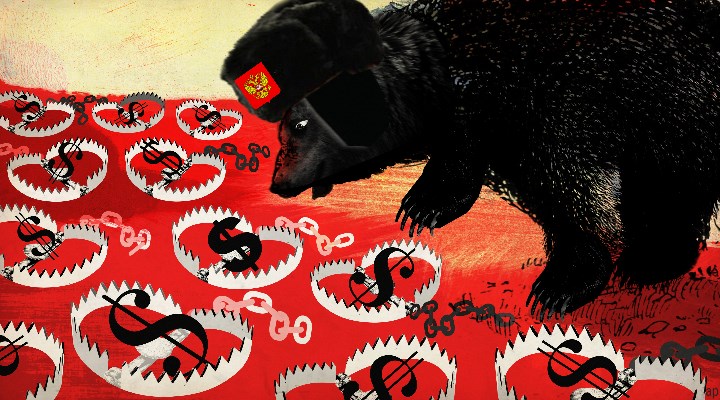
Sustainable funds have relatively low exposure to Russia, but not because of opposition to the Putin regime. Russian companies tend to have high levels of environmental, social, and governance risk and fossil fuel involvement, which preclude most of them from sustainable fund portfolios.
With the growth of sustainable fund offerings over the past five years, investors can now more easily construct entire portfolios out of funds that consider ESG as a central feature of their investment approach. This includes emerging-markets equity, where there are now 25 open-end or exchange-traded sustainable funds available to US investors alone.
Among these sustainable emerging-markets funds, only one has Russia exposure higher than the 4.9% average for funds in the diversified emerging-markets Morningstar Category. By contrast, 10 funds have less than 1% exposure to Russia and four have none at all. Sustainable emerging-markets equity funds have, on average, just 1.8% exposure to Russian equities, nearly two thirds less than the overall category average.
Their relative aversion to Russia isn’t political (unfortunately, in my view) it’s just that few public companies in Russia are attractive ESG investments. Many Russian public companies have high levels of ESG risk, particularly those in the fossil fuel industry, which comprises about half of the country’s market capitalization.
Of the Russian companies covered by the Sustainalytics ESG Risk Rating, 57% have ESG risk assessments of High or Severe. The average Sustainalytics ESG Risk Rating of the Russian companies it covers is 31.5, which places in the High ESG Risk category. IShares MSCI Russia ETF (ERUS), based on an index that is designed to measure the large- and mid-cap segments of the Russian equity market, has a Morningstar Sustainability Rating of 1 globe, and nearly 70% of its asset-weighted holdings have ESG Risk Ratings of High or Severe.
The Russian invasion of Ukraine and the economic sanctions that have been put in place by Western nations raise the issue of whether sustainable funds (or any fund, really) should consider setting systemic investment parameters to guard against autocracy risk. There is one emerging-markets fund, Freedom 100 Emerging Markets ETF (FRDM), that does this, excluding investments in Russia (also China, Saudi Arabia, Hungary, and Turkey).
Investors in Russia are also seeing the effects of autocracy risk firsthand, as their investments are frozen and likely headed to zero. The idea that autocratic regimes need international investment more than investors need them has led to overconfidence about the safety of these places to invest.
Of course, there is a moral component to this, as well. As I write, the list of institutional investors pulling out of Russia is growing, as is the number of global companies cutting ties with Russia. Things are a bit more complicated on the investment side because the Moscow Exchange is closed and other intermediaries are not stepping in to buy and sell Russian securities. That could make it hard for pension funds and even public mutual funds to divest.
But the broader point about divestment, or even the intent to divest, isn’t to sidestep the plummeting value of Russian stocks, it is to make the moral point that investing in Russia and perhaps eventually profiting from those investments is wrong, given what’s happening in Ukraine today. Divestment is a way for investors to show solidarity and resolve against Russian aggression.
The current situation highlights the need for investors to reevaluate their stance toward investing in autocratic regimes. Given current circumstances, it’s easy to remove Russia from emerging-markets portfolios, even if the removal is only symbolic at this point, because Russia isn’t a big component of emerging-markets indexes.
That’s not the case with China. Most emerging-markets funds have significant exposure to China, which takes up nearly 30% in emerging-markets indexes. Do investors want to continue to pour money into China, where it helps legitimize a system lacking democracy, freedom, and human rights? At the very least, the topic should be on the table for discussion.










%20(1).jpg)
:quality(80)/cloudfront-us-east-1.images.arcpublishing.com/morningstar/6BCTH5O2DVGYHBA4UDPCFNXA7M.png)

















